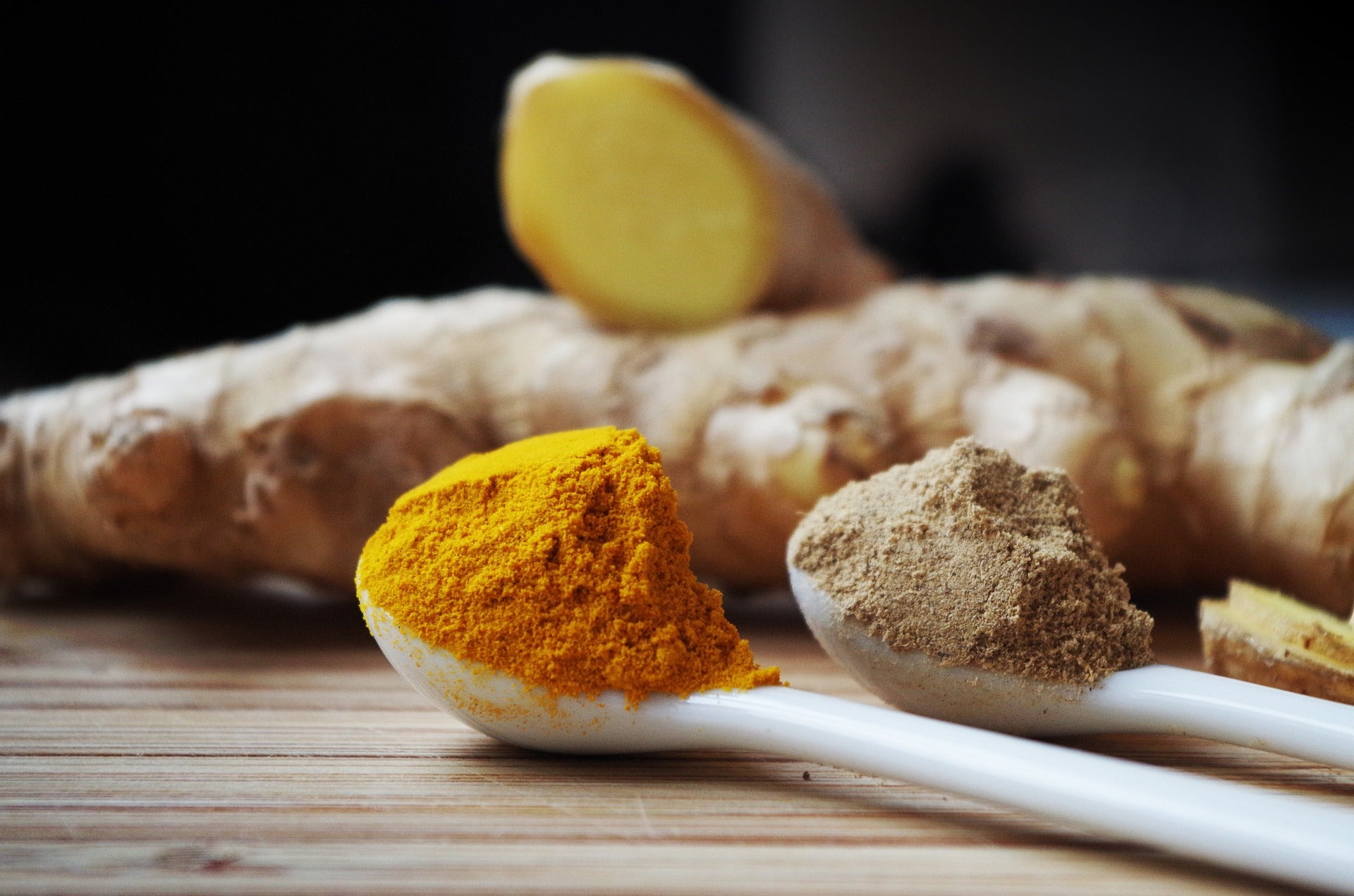Any overdose can be frightening, and unfortunately, they can happen all too easily. An acetaminophen overdose is no exception.
In fact, acetaminophen overdose is one of the most common universal poisonings. Each year, acetaminophen overdose causes an estimated 458 deaths. (1) But with acetaminophen natural alternatives, overdose is completely avoidable.
When faced with pain, many people reach for a pill bottle when they should perhaps try one of the acetaminophen natural alternatives.
Further, when pain worsens or persists, those same people might take more than the recommended dose.
However, by choosing one of the acetaminophen natural alternatives, you can prevent a potentially life-threatening situation. The signs and symptoms of acetaminophen overdose mimic common illnesses.
However, a diagnosis may go undetected for several hours. As with many medical issues, prevention is the best method.
To prevent an acetaminophen overdose, there are a number of natural muscle relaxers you can choose.
By choosing a natural alternative to acetaminophen, you not only remove the risk of overdosing. You also prevent yourself from experiencing the negative side effects of acetaminophen.
These can include nausea, stomach pain, loss of appetite, and itching. Further, acetaminophen causes an allergic reaction in some people that can include a rash outbreak, itching and swelling of the tongue/throat or even severe dizziness.
Thankfully, natural alternatives to acetaminophen can be just as effective at relieving pain without these potentially life-threatening effects.
 One of the best alternatives to Tylenol for headache is peppermint oil. (6) It provides muscle pain relief and may work as a fever reducer. (7)
For pain management, apply peppermint oil topically to the area in question. For an alternative to Tylenol for fever, apply the oil to the back of the neck and bottoms of the feet. Use 1 to 3 drops twice daily.
Further, peppermint oil can provide a whole host of additional benefits beyond pain relief.
These include relief from irritable bowel syndrome, respiratory infections and even sunburn.
One of the best alternatives to Tylenol for headache is peppermint oil. (6) It provides muscle pain relief and may work as a fever reducer. (7)
For pain management, apply peppermint oil topically to the area in question. For an alternative to Tylenol for fever, apply the oil to the back of the neck and bottoms of the feet. Use 1 to 3 drops twice daily.
Further, peppermint oil can provide a whole host of additional benefits beyond pain relief.
These include relief from irritable bowel syndrome, respiratory infections and even sunburn.
 Aloe vera works to reduce pain-causing inflammation. Further, it can also boost the immune system, heal wounds, and sooth burns. (8)
You can take aloe vera in a capsule. Alternatively, apply it right to the skin.
Aloe vera works to reduce pain-causing inflammation. Further, it can also boost the immune system, heal wounds, and sooth burns. (8)
You can take aloe vera in a capsule. Alternatively, apply it right to the skin.
 Gingerol, which is present in ginger, is a highly potent antioxidant and anti-inflammatory agent. Furthermore, it eases digestion and prevents bacterial and fungal infections. Additionally, gingerol reduces pain. (9)
Try eating raw ginger in small portions. Further, you can make ginger tea or use ginger essential oil.
Gingerol, which is present in ginger, is a highly potent antioxidant and anti-inflammatory agent. Furthermore, it eases digestion and prevents bacterial and fungal infections. Additionally, gingerol reduces pain. (9)
Try eating raw ginger in small portions. Further, you can make ginger tea or use ginger essential oil.
 Tumeric reduces inflammation and fights pain. That being so, it's a great replacement for Tylenol. This is especially true when dealing with arthritic pain. (10)
With this in mind, there are a number of ways to load up on turmeric. Ingest it in any of the several recipes that call for it or apply it directly to the skin.
Tumeric reduces inflammation and fights pain. That being so, it's a great replacement for Tylenol. This is especially true when dealing with arthritic pain. (10)
With this in mind, there are a number of ways to load up on turmeric. Ingest it in any of the several recipes that call for it or apply it directly to the skin.
 It's a good idea to remove toxins after ingesting acetaminophen. You can do this with a liver cleanse, which can be extremely beneficial. (11) For example, it can destroy old red blood cells, break down and metabolize medications and alcohol, remove toxins from the blood, and regulate blood composition. (12)
Further, a liver cleanse can remove some of the toxins that were causing you pain in the first place.
It's a good idea to remove toxins after ingesting acetaminophen. You can do this with a liver cleanse, which can be extremely beneficial. (11) For example, it can destroy old red blood cells, break down and metabolize medications and alcohol, remove toxins from the blood, and regulate blood composition. (12)
Further, a liver cleanse can remove some of the toxins that were causing you pain in the first place.
What medications contain acetaminophen?
There are many popular over-the-counter brands that contain this chemical. They include: (2)- DayQuil
- NyQuil
- Excedrin
- Midol
- Robitussin
- Theraflu
- Vicks
- Benadryl
- Sudafed
- Headache & Pain Relief
- Sinus Pain Relief
- Children & Infants
- Arthritis Pain
- Extra Strength
What constitutes an acetaminophen overdose?
Any of the medications above will list the maximum allowed amount on the label. However, as a general guideline, no human being should be taking more than 4 grams of acetaminophen within a day. One tablet of Tylenol contains 500 mg of acetaminophen, placing you in overdose territory if you take more than eight tablets a day.How does an acetaminophen overdose happen?
In addition to everyone's worst nightmare – a child opening a bottle of pills containing acetaminophen and ingesting them – an acetaminophen overdose can happen in a number of ways. As mentioned earlier, many people take more than what's recommended on the label out of frustration after the proper dose does not relieve their symptoms. However, the problem with this is simple. At recommended doses, while acetaminophen may still cause side effects, your liver is powerful enough to process that toxicity and excrete it from your body. However, when you go overboard with medication containing acetaminophen, your liver cannot keep up and thus begins a toxic cycle. As you'll se based on the acetaminophen overdose symptoms in a little bit, this cycle can put you in even more pain than you were dealing with in the first place. Additionally, many people overdose on acetaminophen in an attempt to commit suicide or cry out for help because of psychiatric disorders. In fact, most people who overdose on acetaminophen do so with this intention and will take a large dose in one sitting. Now, a large amount of acetaminophen will kill you. But it will be incredibly painful – so much so that you'll have some serious regrets once the effects begin kicking in. Those who do survive acetaminophen suicide attempts can end up with permanent body damage that makes their life before the overdose seem rosy by comparison. Instead, consider reaching out to one of the many helplines available. Further, give one of these natural depression remedies a try. Regardless of how an acetaminophen overdose occurs, knowing the signs is key. It could just save your life – or someone else's.Acetaminophen overdose symptoms include the following: (3)
- Upset stomach
- Vomiting
- Diarrhea
- Nausea
- Abdominal pain
- Appetite loss
- Sweating
- Yellowing eyes/skin
- Extreme tiredness
- Dark urine
- Convulsions
- Irritability
- Coma
- Jaundice
Here are 5 natural acetaminophen and aspirin alternatives for pain, fever and inflammation:
1. Peppermint Essential Oil
 One of the best alternatives to Tylenol for headache is peppermint oil. (6) It provides muscle pain relief and may work as a fever reducer. (7)
For pain management, apply peppermint oil topically to the area in question. For an alternative to Tylenol for fever, apply the oil to the back of the neck and bottoms of the feet. Use 1 to 3 drops twice daily.
Further, peppermint oil can provide a whole host of additional benefits beyond pain relief.
These include relief from irritable bowel syndrome, respiratory infections and even sunburn.
One of the best alternatives to Tylenol for headache is peppermint oil. (6) It provides muscle pain relief and may work as a fever reducer. (7)
For pain management, apply peppermint oil topically to the area in question. For an alternative to Tylenol for fever, apply the oil to the back of the neck and bottoms of the feet. Use 1 to 3 drops twice daily.
Further, peppermint oil can provide a whole host of additional benefits beyond pain relief.
These include relief from irritable bowel syndrome, respiratory infections and even sunburn.
2. Aloe Vera
 Aloe vera works to reduce pain-causing inflammation. Further, it can also boost the immune system, heal wounds, and sooth burns. (8)
You can take aloe vera in a capsule. Alternatively, apply it right to the skin.
Aloe vera works to reduce pain-causing inflammation. Further, it can also boost the immune system, heal wounds, and sooth burns. (8)
You can take aloe vera in a capsule. Alternatively, apply it right to the skin.
3. Ginger
 Gingerol, which is present in ginger, is a highly potent antioxidant and anti-inflammatory agent. Furthermore, it eases digestion and prevents bacterial and fungal infections. Additionally, gingerol reduces pain. (9)
Try eating raw ginger in small portions. Further, you can make ginger tea or use ginger essential oil.
Gingerol, which is present in ginger, is a highly potent antioxidant and anti-inflammatory agent. Furthermore, it eases digestion and prevents bacterial and fungal infections. Additionally, gingerol reduces pain. (9)
Try eating raw ginger in small portions. Further, you can make ginger tea or use ginger essential oil.
4. Turmeric
 Tumeric reduces inflammation and fights pain. That being so, it's a great replacement for Tylenol. This is especially true when dealing with arthritic pain. (10)
With this in mind, there are a number of ways to load up on turmeric. Ingest it in any of the several recipes that call for it or apply it directly to the skin.
Tumeric reduces inflammation and fights pain. That being so, it's a great replacement for Tylenol. This is especially true when dealing with arthritic pain. (10)
With this in mind, there are a number of ways to load up on turmeric. Ingest it in any of the several recipes that call for it or apply it directly to the skin.
5. Liver Cleanse
 It's a good idea to remove toxins after ingesting acetaminophen. You can do this with a liver cleanse, which can be extremely beneficial. (11) For example, it can destroy old red blood cells, break down and metabolize medications and alcohol, remove toxins from the blood, and regulate blood composition. (12)
Further, a liver cleanse can remove some of the toxins that were causing you pain in the first place.
It's a good idea to remove toxins after ingesting acetaminophen. You can do this with a liver cleanse, which can be extremely beneficial. (11) For example, it can destroy old red blood cells, break down and metabolize medications and alcohol, remove toxins from the blood, and regulate blood composition. (12)
Further, a liver cleanse can remove some of the toxins that were causing you pain in the first place.




